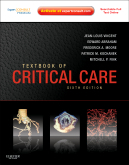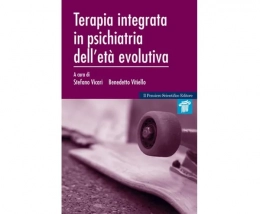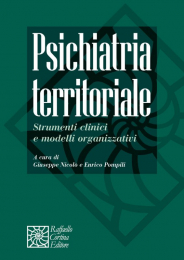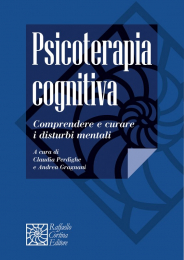Non ci sono recensioni
|
||||||||||
|
||||||||||
|
||||||||||
Table of Contents:
Chapter Title
1 Sudden Deterioration of Neurological Status
2 Agitation/Delirium
3 Management of Acute Pain
4 Fever and Hypothermia
5 Very High Systemic Arterial Blood Pressure
6 Low Systemic Arterial Blood Pressure
7 Tachycardia and Bradycardia
8 Arterial Hypoxemia
9 Acute Respiratory Failure
10 Polyuria
11 Oliguria
12 Disturbances of Acid-base Balance
13 Hypernatremia and Hyponatremia
14 Hyperkalemia and Hypokalemia
15 Hyperphosphatemia and Hypophosphatemia
16 Hypomagnesemia
17 Hypercalcemia and Hypocalcemia
18 Hypoglycemia
19 Anemia
20 Thrombocytopenia
21 Coagulopathy
22 Jaundice
23 The Management of Gastrointestinal Bleeding
24 Ileus
25 Diarrhea
26 Rashes
27 Chest Pain
28 Biochemical or Electrocardiographic Evidence of Acute Myocardial Injury
29 Biochemical, Cellular, and Molecular Mechanisms of Neuronal Death and Secondary Brain Injury in Critical Care
30 Critical Neuropathophysiology
31 Advanced Bedside Neuromonitoring
32 Coma
33 Cardiopulmonary Cerebral Resuscitation
34 Management of Acute Ischemic Stroke
35 Nontraumatic Intracerebral and Subarachnoid Hemorrhage
36 Seizures in the Critically Ill
37 Neuromuscular Disorders in the ICU
38 Traumatic Brain Injury
39 Spinal Cord Injury
40 Neuroimaging
41 Intensive Care after Neurosurgery
42 Key Issues in Pediatric Neurointensive Care
43 Bedside Monitoring of Pulmonary Function
44 Principles of Gas Exchange
45 Arterial Blood Gas Interpretation
46 RESPIRATORY SYSTEM MECHANICS AND RESPIRATORY MUSCLE FUNCTION
47 Heart-Lung Interaction
48 Assist - Control Mechanical Ventilation
49 Patient-Ventilator Interaction
49 Patient-Ventilator Interaction
50 Weaning from Mechanical Ventilation
51 Noninvasive Ventilation
52 High Frequency Ventilation
53 Extracorporeal Life Support
54 Adjunctive Respiratory Therapy
55 Indications for and Management of Tracheostomy
56 Hyperbaric Oxygen in Critical Care
57 Imaging of the Chest
58 Acute Lung Injury and Acute Respiratory Distress Syndrome
59 Aspiration Pneumonitis and Pneumonia
60 Severe Asthma Exacerbation
61 Chronic Obstructive Pulmonary Disease
62 Pulmonary Embolism
63 Other Embolic Syndromes (Air, Fat, Amniotic Fluid)
64 Pulmonary Hypertension
65 Pleural Disease and Pneumothorax
66 Community Acquired Pneumonia
67 Nosocomial Pneumonia
68 Pulmonary Infections in the Immunocompromised Patient
69 Lung Transplantation
70 Burns and Inhalation Injury
71 Drowning
72 Acute Parenchymal Disease in Infants and Children
73 Pulmonary Edema
74 Hemodynamic Monitoring
75 Acute Coronary Syndromes: Pathophysiology and Diagnosis
76 Acute Coronary Syndromes: Management and Complications
77 Invasive Cardiac Procedures
78 Supraventricular Arrhythmias
79 Ventricular Arrhythmias
80 Conduction Disturbances and Cardiac Pacemakers
81 Sudden Cardiac Death ¿ Implantable Defibrillators
82 Severe Heart Failure
83 Myocarditis and Acute Myopathies
84 Acquired and Congenital Heart Disease in Children
85 Pericardial Diseases
86 Emergent Valvular Disorders
87 Infectious Endocarditis
88 Hypertensive Urgencies and Crisis
89 Cardiac Surgery: Indications and Complications
90 Pathophysiology and Classification of Shock States
91 Resuscitation from Circulatory Shock
92 Inotropic Therapy
93 Mechanical Support in Cardiogenic Shock
94 Critical Care Nutrition
95 Nutritional Issues in Children
96 Portal hypertension
97 Ascites
98 Gastrointestinal hemorrhage
99 Hepatorenal Syndrome
100 Hepatopulmonary Syndrome
101 Hepatic Encephalopathy
102 Fulminant Hepatic Failure
103 Calculous and Acalculous Cholecystitis
104 Acute Pancreatitis
105 Peritonitis and Intra-Abdominal Infection
106 Ileus and Mechanical Bowel Obstruction
107 Toxic Megacolon and Ogilvie's Syndrome
108 Clinical Assessment of Renal Function
109 Metabolic Acidosis and Alkalosis
110 Disorders of Water Balance
111 Disorders of Plasma Potassium Concentration
112 Disorders of Calcium and Magnesium Metabolism
113 Fluid and Electrolytes in Children
114 Acute Renal Failure
115 Renal Replacement Therapy In The ICU
116 Urinary Tract Obstruction
117 Contrast Dye-induced Nephropathy
118 Glomerulonephritis and Interstitial Nephritis
119 Antimicrobials in Chemotherapy Strategy
120 Beta-lactam Drugs
121 Aminoglycosides
122 Fluoroquinolones
123 Macrolides
124 Agents with Primary Activity Against Gram-positive Bacteria
125 Metronidazole and other Antibiotics for Anaerobic Infections
126 Prevention and Control of Nosocomial Infection
127 Selective Digestive Decontamination
128 Vascular Catheter Related Infections
129 Pathophysiology of Sepsis and Multiple Organ Dysfunction
130 Septic Shock
131 Sepsis and Multiple Organ System Failure in Children
132 Acute Bacteremias
133 Infections of the Urogenital Tract
134 Central Nervous System Infections
135 Infections of Skin, Muscle, and Soft Tissue
136 Head and Neck Infections
137 Infections in the Immunocompromised Patient
138 Infectious Endocarditis
139 Fungal Infections
140 Influenza
141 Human Immunodeficiency Virus Infection
142 Tuberculosis
143 MALARIA AND OTHER TROPICAL INFECTIONS IN THE INTENSIVE CARE UNIT
144 Rickettsial Diseases
145 Acute Viral Syndromes
146 Clostridium difficile colitis: Prevention and management
147 Tetanus
148 Botulism
149 Dengue
150 Anemia and Red Blood Cell Transfusion in Critically Ill Patients
151 Blood Component Therapies
152 Management of Leucopenia
153 Venous Thromboembolism in Medical-Surgical Critically Ill Patients
154 Hematologic Malignancies in the Intensive Care Unit
155 The Hematopoietic Stem Cell Transplantation Patient
156 Organ Toxicity of Cancer Chemotherapy
157 Hematology and Oncology in Children
158 Cardiovascular and Endocrinological Changes Associated with the Pregnant State
159 Hypertensive Disorders of Pregnancy
160 Acute Pulmonary Complications of Pregnancy
161 Peripartum Hemorrhage
162 Trauma in the Gravid Patient
163 Hyperglycemic Comas
164 Hyperglycemia and Blood Glucose Control
165 Adrenal Insufficiency
166 Thyroid Gland Disorders
167 Diabetes Insipidus
168 Metabolic and Endocrine Crises in the Pediatric Intensive Care Unit
169 General principles of Pharmokinetics and Pharmacodynamics
170 Poisoning: Overview of Approaches for Evaluation and Treatment
171 Ethanol, Methanol, and Ethylene Glycol
172 Anticonvulsants
173 Calcium Channel Antagonists
174 Drug Therapy in Renal Failure
175 Tricyclic and SSRI Anti-depressants
176 Clinical Use of Immunosuppressants
177 Digitalis
178 Heavy Metals
179 Hydrocarbons
180 Lithium
181 Theophylline and other Methyl Xanthines
182 Antipsychotic Agents
183 Nonsteroidal Anti-inflammatory Agents
184 Opioids
185 Pesticides and Herbicides
186 Sedatives and Hypnotics
187 Toxic Inhalants
188 Cocaine
189 Methamphetamine, Ecstasy and Other Street Drugs
190 Pharmacoeconomics
191 Resuscitation of Hypovolemic Shock
192 Mediastinitis
193 Epistaxis
194 Management of the Postoperative Cardiac Surgical Patient
195 Management of Patients after Heart, Heart-lung or Lung Transplantation
196 Management of Patients after Kidney, Kidney-pancreas, or Pancreas Transplantation
197 Liver Transplantation
198 Intestinal and Multiple Organ Transplantation
199 Aortic Dissection
200 Splanchnic Ischemia
201 Abdominal Compartment Syndrome
202 Thrombolytics
203 Atheroembolization
204 Pressure Sores
205 Management of Pain, Anxiety, and Delirium
206 Burns
207 Thoracic Trauma
208 Abdominal Trauma
209 Pelvic and Major Long Bone Fractures
210 Pediatric Trauma
211 Management of the Brain Dead Organ Donor
212 Non-Heartbeating Organ Donation
213 Beyond Technology: Caring for the Critically Ill Patient
214 Conversations with Families of Critically Ill Patients
215 Resource Allocation in the Intensive Care Unit
216 Basic Ethical Principles in Critical Care
217 Ethical Controversies in Pediatric Critical Care
218 End of Life in the ICU
219 Determination of Brain Death
220 Building Teamwork to Improve Outcomes
221 The Pursuit of Performance Excellence
221 The Pursuit of Performance Excellence
222 Severity of Illness Indices and Outcome Prediction: Development and Evaluation
223 Evaluating Pediatric Critical Care
224 Key Issues in Critical Care Nursing
225 Transport Medicine
226 Mass Critical Care
227 Evidence-Based Critical Care
228 Teaching Critical Care




